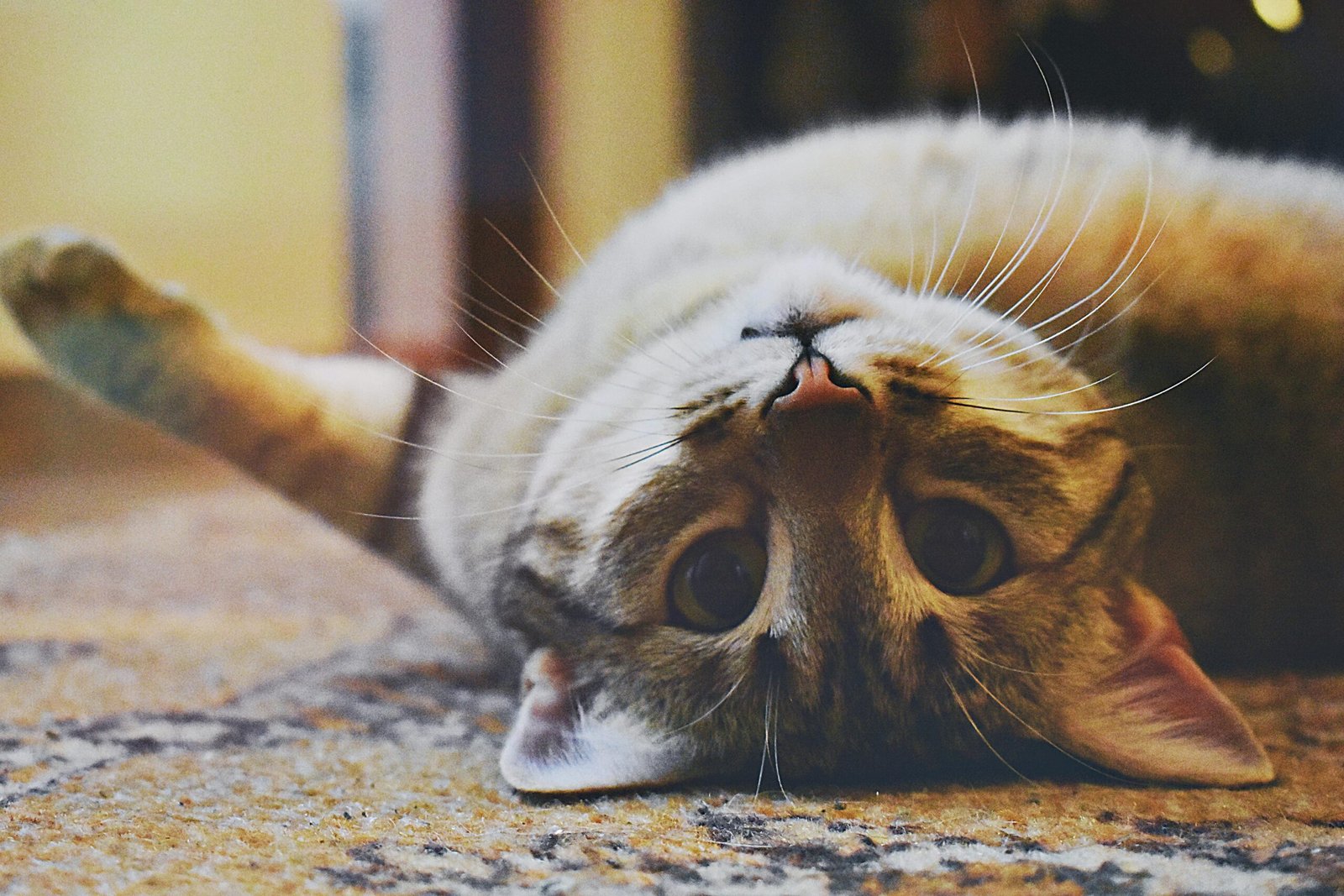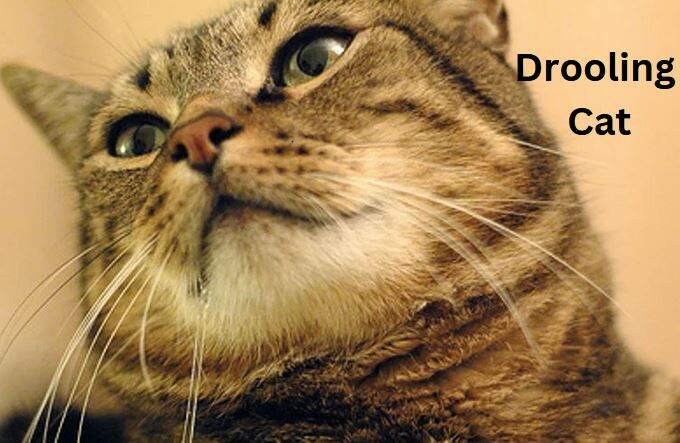You might notice saliva dribbling down the corner of your kitty’s mouth during petting and wonder, “Why does my cat drool when I pet him?” This phenomenon may come as a surprise, especially if you’re acclimatized to the belief that only dogs can drool. The answer to this question is relatively straightforward.
Your cat drools when you pet him because he is pleased and content with the affection and attention he is getting. Stroking arouses pleasurable body sensations that stimulate drooling. It also causes the body’s muscles, including the facial muscles, to relax, hence the unintentional flow of saliva.
Keep reading this post as I explore the possible causes of your cat drooling when you pet him. But before that, it’s crucial to learn the difference between normal and abnormal drooling so you can correctly interpret your cat’s behavior and act accordingly. Let’s begin.
Understanding Cat Drooling
Drooling (or slobbering) is the involuntary saliva flow outside the cat’s mouth. It can occur as a result of:
- Salivary glands producing excess saliva
- Inability to keep saliva within the mouth (incontinence of saliva)
- Challenges in swallowing
Normal Vs. Abnormal Drooling in Cats

Cats are expected to drool even though they don’t do it as often and as much as dogs.
Normal drooling mainly occurs when cats feel happy, content, and relaxed. You may observe your kitty drooling when kneading, purring, sleeping, or petting them. That’s perfectly okay.
Normal cat drool is minimal, occurs occasionally, and lasts for a few minutes or until the stimulus is removed. This type of saliva is usually thin, watery, odorless, and primarily clear in color.
Drooling as a result of the following is also considered normal.
- Teething: Dental discomfort in kittens due to teething can trigger drooling. Drooling usually ends once the teeth erupt.
- Tasty Food: Some cats will typically drool around mealtime. It might be because of the smell and sight of delicious food or the excitement of anticipating a meal.
- Bitter or Bad Taste: A cat will drool when they taste something they dislike, such as medicine. Drooling, in such a case, is an effort to eliminate the taste.
- Stressful Situations: Some cats are nervous slobbers. Stressful situations such as vet visits, car rides, fireworks, construction noises, and the presence of house guests will trigger drooling. Drooling usually stops once the stressful experience ends.
- Motion Sickness: Vehicle riding can trigger nausea (motion sickness) in some felines. They may drool, vocalize repetitively, pace restlessly, or lick their lips excessively to show distress. These symptoms stop at the end of the ride.
- Medication Side Effects: Administration of some antibiotics, antihistamines, painkillers, and steroids can lead to drooling as a side effect.
- Abnormal Dental Conformation: Cats with abnormal dental structures or multiple missing teeth can struggle to keep saliva within the mouth.
The constant release of excessive, thick saliva characterizes abnormal drooling in cats. This type of drooling appears suddenly and can last for hours or days. The saliva can be darker than usual and smelly.
Abnormal drooling is usually a sign of a critical issue that needs immediate attention. It includes:
- Heatstroke
- Poisoning
- Oral health problems
- Upper respiratory infections
- Allergic reactions
- Organ failure
- Neurological disorders
As such, you should see your vet immediately after observing some of these symptoms accompanying your cat’s excessive drooling.
- Swollen face
- Bad breath
- Bloody saliva
- Lethargy
- Persistent diarrhea and vomiting
- Labored breathing
- Reduced appetite
- Swollen lymph nodes
| Normal Drooling | Abnormal Drooling |
| Minimal amounts of saliva | Copious amounts of saliva |
| Short-lived | It lasts for hours or days |
| Occurs occasionally | Appears suddenly |
| Thin and watery | Thicker and more viscous |
| Odorless | It can be smelly |
| It’s usually clear | It can be darker than usual |
| It’s not accompanied by symptoms of illness | It can be accompanied by symptoms of illness |
A Cat Drooling When Being Pet: 4 Main Causes
1. They’re Enjoying Affection
Cats may often appear nonchalant regarding our affection for them, but they actually feel loved and appreciate being given affection.
Experts believe most cats adore human touch because it mimics their mothers’ grooming.
Your kitty may often seek this interaction by approaching you with their eyes wide and tail up.
They may also paw at you, brush their body against yours, or even climb up and sit on you to be pet.
Petting them generates a feeling similar to maternal love, and they may drool as they enjoy it.
Now that you know cats love affection, you may wonder how they reciprocate it.
If you understand your feline’s language, you’ll know how they return the love. This may include cuddling, grooming (licking), and kneading you.
Find Out: Why Is My Cat Drooling Thick Saliva?
2. They’re Enjoying Attention
While cats are known to be independent creatures, they crave attention and attachment, especially from their favorite human.
Similar to feeding and playtime, petting is a form of attention.
Your cat drooling during petting may mean they’re enjoying the attention you’re giving them and that you should continue rubbing them. They may lean more into the rubs, close their eyes, or purr to show delight.
On a side note, providing enough attention to your cat is critical for their well-being. Without attention, they’ll get bored, stressed, and frustrated, which will likely manifest in negative behaviors, such as:
- Overeating
- Overgrooming
- Destruction
- Aggression
- Excessive vocalization
- Inappropriate defecation
3. They’re Relaxed and Content
Your fur baby may simply be a happy drooler. When you pet him, he may drool because he feels extremely relaxed, comfortable, and content.
Perhaps he’s happy with your company, the cozy environment you’ve created for him, or the love and attention he receives from you.
This state of contentment will likely make him relax his body, including the facial muscles, causing drooling.
Happy drooling in felines is habitual. It can be traced back to kittenhood when kittens are happy and content after a satisfying meal or snuggle from their mother.
This creates a euphoria in which they relax entirely, losing control over their muscles and causing them to drool.
4. They’re Stressed or Overstimulated
Despite all the above reasons, it’s vital to understand that not all felines enjoy being stroked.
This may come as a personal preference for some; for others, it may be due to inadequate socialization with humans and other pets.
Some cats may have been orphaned young, so they don’t understand physical touch. Others may have PTSD, making them fear the human touch.
Petting in such situations can trigger stress and discomfort, leading to drooling, vocalization, or aggression. Drooling could be a way of self-soothing.
Some cats may enjoy being petted for a minute, only for them to snap at the next.
Experts refer to this as overstimulation aggression or petting-induced aggression. It may mean that the cat has reached its petting threshold and needs you to cease, or it’s uncomfortable being petted in specific areas.
Drooling can be an initial sign of overstimulation in some cats.
Understanding your feline’s body language is critical in gauging their comfort level and preventing petting-induced stress or overstimulation.
8 Tips for Managing Drooling in Cats
To know how to manage your cat’s drooling, you must first determine its reason.
By now, you should understand that drooling can be caused by various factors, some of which are benign.
Here are a few ways to manage drooling in cats.
- Take your cat to the vet for a physical examination once you notice a sudden drooling. Early diagnosis and treatment equate to a more successful result.
- Conduct regular vet checkups to ensure your feline’s wellness and allow early identification of potential health issues.
- Keep your kitty’s vaccinations up-to-date to minimize the likelihood of diseases.
- Maintain your cat’s oral hygiene by regularly brushing their teeth with pet-safe toothpaste, removing stuck objects between their teeth, and taking them for thorough dental cleaning to remove plaques. A healthy diet is also recommended.
- Outdoor adventures increase the chances of your cat getting poisoned, infections, or mouth injuries. Consider keeping them indoors. Also, keep them away from toxic substances in the house, such as cleaning products and poisonous plants.
- If traveling, give your cat medication to prevent the nausea of motion sickness.
- Feed your cat on time to prevent drooling caused by food anticipation.
- Consider putting a towel on your lap when petting your cat since preventing this type of happy drool is impossible.
Conclusion
I bet by now you have an answer to the question, ‘Why does my cat drool when I pet him?’
It is usual for cats to drool when you pet them. Drooling is a way of expressing their excitement and contentment.
Normal drooling in cats is nothing to worry about, as it disappears immediately after the experience stops.
You should, however, be concerned when you can’t find a normal reason to link with your kitty’s drooling.
Contact your vet if you notice symptoms of sickness alongside hypersalivation.

